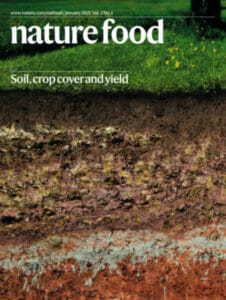
In a new study, Carbon emissions from the global land rush and potential mitigation, published in the journal Nature Food, sustainability scientist Chuan Liao and co-authors looked at what drives large-scale land acquisitions and how the implementation of large-scale land acquisitions for agricultural development affects carbon emissions, and in turn, climate change.
According to Liao, “In this brief communication in Nature Food, we investigated what drives large-scale land acquisitions and how the implementation of large-scale land acquisitions for agricultural development affect carbon emissions, and in turn, climate change. Overall, the findings suggest there is a cost-effective way to produce more food while minimizing carbon emissions from this process. It is unrealistic to say that we cannot convert more land given that the world’s population is growing especially in developing countries, but we still must minimize carbon emissions while pursuing agricultural development.”
Read more about the work in ASU Now. The abstract follows:
Global drivers and carbon emissions associated with large-scale land transactions have been poorly investigated. Here we examine major factors behind such transactions (income, agricultural productivity, availability of arable land and water scarcity) and estimate potential carbon emissions under different levels of deforestation. We find that clearing lands transacted between 2000 and 2016 (36.7 Mha) could have emitted ~2.26 GtC, but constraining land clearing to historical deforestation rates would reduce emissions related to large-scale land transactions to ~0.81 GtC.